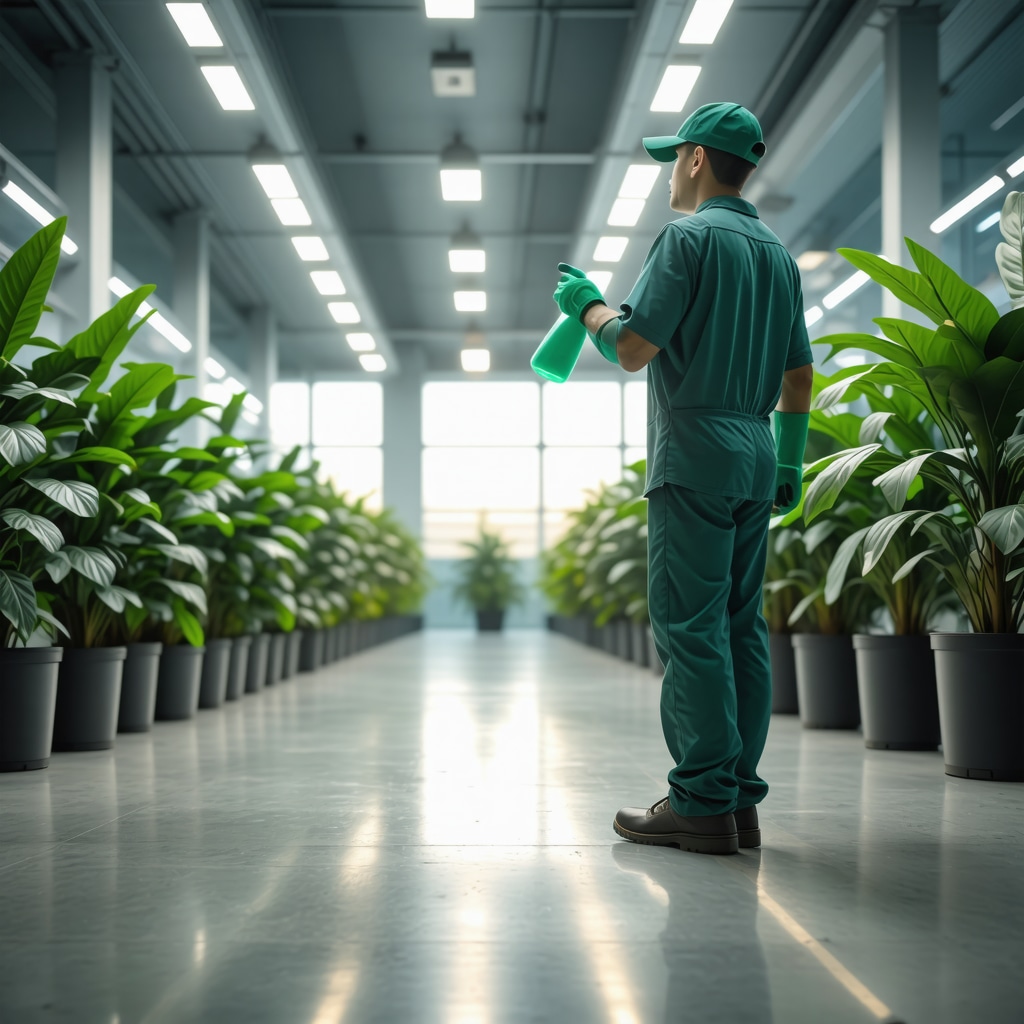Understanding the Value Proposition of Eco-Friendly Dry Cleaning Services in Odessa
In an era where environmental consciousness influences consumer choices, the demand for eco-friendly dry cleaning services with pickup options in Odessa has surged notably. These services not only prioritize sustainability but also enhance convenience, reflecting a sophisticated approach to fabric care that aligns with modern values. As industry experts, we recognize that discerning clients seek transparency in pricing, quality assurance, and eco-credentials, making comprehensive cost guides essential for informed decision-making.
Deciphering the Cost Structure of Eco Dry Cleaning with Pickup in Odessa
The financial landscape of eco dry cleaning services hinges on multiple factors: the use of plant-based solvents, advanced green technology, and delivery logistics. Typically, the cost per garment ranges from $10 to $25, influenced by fabric type, garment complexity, and service tier. For instance, delicate designer pieces or wedding gowns may command premium rates due to specialized handling and eco-friendly preservation techniques. Industry leaders emphasize that sustainable practices often entail higher operational costs, but these are offset by consumer willingness to invest in health, quality, and environmental benefits.
What Are the Hidden Costs & Value-Added Benefits of Eco Dry Cleaning?
Beyond the sticker price, eco dry cleaning offers significant long-term value. For example, eco-friendly solvents like plant-based cleaning solvents extend the lifespan of garments by reducing fabric degradation. Moreover, pickup services introduce logistical efficiencies, saving time and reducing carbon footprint through optimized routing. These benefits often justify the slightly elevated costs, especially when considering the health implications of traditional chemical cleaners, which can be a concern for sensitive skin or allergy sufferers.
How Do Sustainable Practices Impact Pricing in Odessa’s Eco Dry Cleaners?
Adoption of Green Certifications, such as those highlighted in certified eco-dry cleaners, often correlates with higher pricing. These certifications assure consumers of adherence to strict environmental standards, including non-toxic solvents and waste reduction protocols. The integration of innovative technologies, like low-emission machines and biodegradable packaging, further influences the cost structure. Yet, these investments bolster brand authority and consumer trust, translating into a premium yet justified pricing model.
What Are the Challenges in Balancing Cost and Eco-Sustainability in Odessa’s Dry Cleaning Market?
Industry debates revolve around the scalability of eco practices and affordability for a broad consumer base. While premium clients may readily accept higher prices for green services, mass-market adoption requires balancing environmental benefits with economic viability. This tension underscores the importance of transparent communication about costs and sustainability goals, as well as ongoing innovation to reduce expenses without compromising eco-standards.
For further insights into sustainable fabric care, explore our comprehensive guide to eco dry cleaning near you. As professionals, we encourage industry stakeholders and consumers alike to contribute to the evolution of green practices, fostering a resilient, eco-conscious dry cleaning ecosystem.
Beyond Basic Green Practices: How Innovation Shapes Eco-Friendly Dry Cleaning in Odessa
As the demand for sustainable fabric care accelerates, industry leaders are increasingly turning to cutting-edge innovations that redefine eco-friendly dry cleaning standards in Odessa. From advanced biodegradable solvents to AI-driven logistics routing, these technological advancements are not only enhancing environmental outcomes but also optimizing operational efficiency. For example, the adoption of plant-based cleaning solvents has revolutionized the industry, reducing toxic emissions and extending garment lifespan.
Can Eco-Conscious Practices Sustain Market Growth Without Compromising Affordability?
This question remains pivotal as Odessa’s dry cleaning sector navigates balancing eco-sustainability with economic viability. Industry experts argue that scalable eco-friendly methods, combined with innovative cost-reduction strategies, can make green services accessible to a broader clientele. For instance, integrating eco-friendly certifications and transparent pricing fosters consumer trust and loyalty, ultimately driving market expansion. According to a recent study by the Sustainable Apparel Coalition, sustainable practices can reduce operational costs over time while enhancing brand reputation, highlighting that eco-consciousness and profitability are not mutually exclusive.
Innovative Financing Models Accelerate Adoption of Eco-Friendly Dry Cleaning in Odessa
One of the most compelling avenues for fostering broader adoption of green practices involves innovative financing solutions that mitigate initial investment barriers. Leasing arrangements for eco-friendly equipment, government grants, and subsidies aimed at sustainable business practices can significantly reduce upfront costs, making green technology more accessible to local dry cleaners. For instance, a recent study by the International Finance Corporation highlights how microfinance institutions are now offering tailored loans specifically designed for small and medium-sized enterprises committed to sustainability (IFC Green Financing Initiatives). This approach not only accelerates eco-friendly upgrades but also fosters economic resilience within Odessa’s fabric care sector.
Can AI and Data Analytics Revolutionize Eco Dry Cleaning Logistics?
Absolutely. The integration of artificial intelligence and data analytics into logistics operations offers transformative potential for Odessa’s eco dry cleaning industry. AI-driven routing algorithms optimize pickup and delivery schedules, reducing fuel consumption and emissions while enhancing customer satisfaction through precise timing. Moreover, predictive analytics can forecast demand patterns, enabling businesses to scale operations efficiently without excess resource expenditure. According to a 2023 report by McKinsey & Company, such technological innovations have demonstrated a capacity to lower operational costs by up to 20% while simultaneously reducing carbon footprints (McKinsey Sustainability Insights).
What Are the Nuanced Challenges in Implementing Eco Certification Standards?
Implementing and maintaining eco certification standards involves navigating complex regulatory landscapes, ensuring consistent compliance, and maintaining transparency. Small dry cleaning businesses often face resource constraints that hinder their ability to meet rigorous standards without sacrificing profitability. The challenge lies in creating scalable certification models that recognize incremental progress, allowing businesses to build their eco credentials progressively. Industry leaders recommend collaborative efforts among regulators, industry associations, and environmental organizations to develop tiered certification frameworks, which acknowledge varying levels of eco-friendly practices and incentivize continuous improvement (GreenBiz on Certification Standards).
How Can Odessa’s Dry Cleaners Foster Consumer Trust Through Transparency and Education?
Building consumer trust hinges on transparent communication about eco-friendly practices, clear pricing, and tangible benefits. Educational campaigns that elucidate the long-term health and environmental advantages of plant-based solvents and sustainable logistics foster informed decision-making. Interactive platforms, such as virtual tours of eco-certified facilities and detailed service breakdowns, demystify green practices and showcase authenticity. As consumers become more environmentally conscious, their purchasing decisions increasingly favor brands that demonstrate genuine commitment through verifiable certifications and ongoing engagement. This strategic transparency not only differentiates Odessa’s dry cleaners but also cultivates a loyal customer base invested in sustainability.

Harnessing Green Chemistry Breakthroughs to Elevate Odessa’s Eco Dry Cleaning Standards
Emerging developments in green chemistry are redefining sustainable fabric care, with novel biodegradable solvents and enzymatic cleaning agents offering reduced toxicity and enhanced garment preservation. These innovations not only minimize environmental impact but also extend the lifespan of delicate textiles, positioning Odessa’s dry cleaners at the forefront of eco-conscious industry standards. Industry research from the Green Chemistry Institute underscores the potential of these advanced formulations to revolutionize chemical processes in fabric care.
What Are the Cutting-Edge Technologies Revolutionizing Eco Dry Cleaning in Odessa?
Automation, artificial intelligence, and IoT integrations are transforming operational efficiencies, enabling real-time monitoring of solvent quality, energy consumption, and waste management. Smart systems facilitate predictive maintenance of equipment, reducing downtime and ensuring consistent eco-friendly performance. Furthermore, AI-powered customer engagement platforms optimize scheduling and logistics, significantly reducing carbon emissions and operational costs. According to a 2023 McKinsey report on sustainable operations, such technological integrations can slash logistical greenhouse gases by up to 25%.

How Can Odessa’s Dry Cleaners Implement Circular Economy Models to Maximize Sustainability?
Adopting circular economy principles involves designing services that prioritize reusability, recycling, and waste reduction at every stage of the supply chain. For example, implementing reusable garment bags, biodegradable packaging, and closed-loop solvent systems minimizes waste and resource consumption. Strategic partnerships with textile recyclers and waste management firms further amplify these efforts, fostering a regenerative business ecosystem. The Ellen MacArthur Foundation provides comprehensive frameworks on integrating circularity into fabric care, promoting resilience and sustainability in local markets.
What Are the Strategic Benefits of Certification and Transparency in Eco Dry Cleaning?
Securing eco-certifications such as Green Seal or EcoLogo significantly enhances brand credibility, attracting environmentally conscious consumers seeking verified sustainable practices. Transparent communication about the sourcing of eco-friendly solvents, energy use, and waste management builds consumer trust and loyalty. Digital platforms providing detailed service breakdowns and real-time environmental impact metrics empower customers and differentiate Odessa’s dry cleaners in a competitive marketplace. As highlighted in a GreenBiz article, transparency acts as a critical lever for market differentiation and consumer engagement in sustainability.
How Can Odessa’s Dry Cleaners Leverage Data Analytics for Continuous Improvement?
Leveraging big data analytics enables businesses to identify inefficiencies, forecast demand, and tailor services to eco-friendly standards. By analyzing customer preferences, garment types, and operational metrics, dry cleaners can optimize resource allocation, reduce waste, and enhance eco-performance. Predictive analytics also facilitate proactive maintenance of eco-friendly equipment, preventing breakdowns and maintaining optimal performance. Industry leaders advocate for integrating data-driven decision-making as a core component of sustainable business models, fostering ongoing innovation and competitive advantage.
Expert Insights & Advanced Considerations
1. Embrace Cutting-Edge Green Chemistry
Industry leaders emphasize the importance of adopting green chemistry breakthroughs, such as biodegradable solvents and enzymatic cleaning agents, which significantly reduce toxicity and environmental impact, positioning Odessa’s dry cleaners as pioneers in sustainable fabric care.
2. Leverage AI-Driven Logistics Optimization
Implementing artificial intelligence and data analytics in logistics can dramatically enhance pickup and delivery efficiency, minimize carbon footprints, and improve customer satisfaction, setting a new standard for eco-conscious operations in Odessa.
3. Foster Transparent Certification Processes
Achieving and maintaining eco certifications like Green Seal not only elevates brand trust but also encourages continuous improvement within the industry through transparent practices and incremental certification standards.
4. Innovate Financing Models for Sustainable Equipment
Utilizing innovative financing options such as leasing, government grants, and tailored loans can lower entry barriers for eco-friendly technologies, accelerating sustainable transformation among Odessa’s dry cleaners.
5. Promote Circular Economy Principles
Designing services around reusability, recycling, and waste reduction—such as biodegradable packaging and closed-loop solvent systems—maximizes sustainability and resource efficiency, fostering resilience in the fabric care sector.
Curated Expert Resources
- Green Chemistry Institute: Offers cutting-edge research and formulations in biodegradable solvents and enzymatic agents that revolutionize eco-friendly fabric cleaning.
- McKinsey & Company – Sustainability in Operations: Provides insightful reports on technological innovations and operational efficiencies that reduce environmental impact.
- GreenBiz: Features industry standards, certification frameworks, and best practices for sustainable dry cleaning practices that build consumer trust and credibility.
- International Finance Corporation (IFC) Green Financing Initiatives: Guides on financial solutions like loans and grants that facilitate eco-friendly business upgrades.
- Ellen MacArthur Foundation: A comprehensive resource on circular economy models applicable to the dry cleaning industry, promoting resource reuse and waste minimization.
Final Expert Perspective
In the evolving landscape of eco-friendly dry cleaning in Odessa, integrating advanced green chemistry, leveraging AI-driven logistics, and fostering transparent certification are paramount for industry leaders aiming for sustainable excellence. By adopting innovative financing and circular economy models, Odessa’s fabric care sector can achieve a resilient, environmentally responsible future. For professionals committed to elevating standards, continuous engagement with these high-level insights and resources is essential. We invite you to explore further, share your expertise, and contribute to shaping the future of sustainable fabric care in Odessa and beyond.
,

